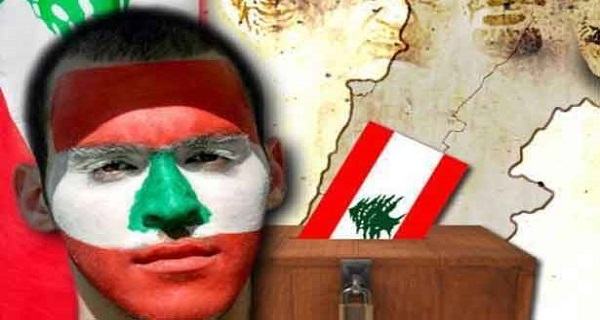Lebanon’s elections and the region’s challenges
Randa Takieddine/Al Arabiya/May 11/18
The recent elections have not changed the balance of power in Lebanon. Everyone knows that Hezbollah dominates decision-making in the country and the proof is that it never commits to the “policy of dissociating” the country from the region’s crises.
The regional arena and international developments following Trump’s decision on the nuclear deal with Iran has raised plenty of questions as to how Lebanon and its new government, which will probably be headed by Saad Hariri, will deal with various issues — primarily those pertaining to Syrian refugees, the country’s relations with the Syrian regime, the stance towards Iran’s activities in the region and the implementation of the conditions of the Cedar Conference.
Hariri’s stance against Syrian regime
President Michel Aoun and his son-in-law Foreign Minister Gebran Bassil have repeatedly said it is important that Syrian refugees return to Syria. Hariri agrees to the principle that they must return to Syria, but only when the security situation is conducive for their return. At a meeting in Brussels, Hariri asked the international community to help Lebanon bear this burden.
The Syrian regime wants Hariri to negotiate this matter with it and wants to force him into giving up his stance against talking with Bashar al-Assad. Syrian Foreign Minister Walid al-Mouallem visited New York and asked his Lebanese counterpart, who did not hesitate to meet him without getting an approval from the cabinet and the prime minister first, not to say that it’s important to negotiate with the Syrian regime regarding the issue of the refugees and to leave this task for Hariri to force him to speak with the regime.
The Syrian regime wants Hariri to negotiate with it and wants to force him to give up his stance against talking with Bashar al-Assad
So will Hariri, if he heads the government that will include several ministers affiliated with Hezbollah, negotiate with a regime that’s fighting with its Sunni citizens, displacing them and forcing them to become refugees in neighboring countries? Before killing its Sunni citizens, the Syrian regime has killed plenty of Lebanese figures of whom the most important was its Sunni leader Rafiq Hariri.
There is no doubt that addressing the issue of ties with the Syrian regime will be one of the most difficult matters that Hariri will confront because Bassil, who aspires to succeed his father-in-law, will stand with Hezbollah, the actual decision maker in this case, which never cared about the government’s dissociation policy.
Hezbollah-Israel clash
In addition, how will Hariri confront the threat of escalation between Hezbollah and Israel after Trump withdrew from the nuclear deal and if Iran escalates its destructive activities in the region, from Syria, Yemen to Lebanon, via Hezbollah? After winning in the elections, Hezbollah Secretary General Hassan Nasrallah said Beirut is part of “the Resistance.”
Meanwhile, an Israeli official said after elections ended that “Lebanon meant Hezbollah” – as if this harmonizes with Hezbollah’s stance. If Israel continues to escalate the situation with Iran in Syria, the question will be: Will Iran drag Hezbollah to involve Lebanon in a war since Nasrallah thinks Beirut stands for the “Resistance”? It’s not in Hezbollah’s interest to open another front in Lebanon but it may find itself forced to do so to serve its Iranian guardian.
Will the 2006 scenario repeat in Lebanon? In this case, the promises made at the Cedar Conference will come to an end. However, when it comes to the economic aspect, the Lebanese president — like the prime minister — showed he wants the path of the Cedar Conference to succeed, unlike Hezbollah and its media outlets which have been skeptical about it.
Hariri has an ally in this matter, the president and his governing family – although Bassil’s ambition to become a president makes him stand with Nasrallah all the time as seen in the statements he made during the electoral campaign.
The results of Lebanon’s elections did not carry huge surprises but they raise plenty of questions during a very critical period of time in the Middle East considering there is a confrontation between the Iranian regime and its proxy Hezbollah, which are destabilizing the region, and an impulsive American president and his Israeli allies. We pray to God that what’s next is not worse for a region that has been enduring many wars and destruction.
انتخابات لبنان وتحديات المنطقة
رندة تقي الدين/الحياة/09 أيار/18
انتخابات لبنان لم تغير شيئاً في ميزان القوى في لبنان. الكل كان يعرف أن «حزب الله» مهيمن في القرارات الإقليمية والدليل أنه لم يلتزم يوماً بالنأي بالنفس عن أزمات المنطقة.
لكن الساحة الإقليمية والتطورات الدولية مع إعلان قرار ترامب عما سيفعله بالنسبة إلى الاتفاق النووي مع إيران تطرح أسئلة كثيرة حول كيفية تعامل لبنان وحكومته التي سيترأسها (أغلب الظن) سعد الحريري مع مواضيع مختلفة في طليعتها ملف اللاجئين السوريين وأيضاً العلاقة مع النظام السوري والموقف من أعمال إيران في المنطقة وتنفيذ شروط مؤتمر «سيدر». سبق للرئيس ميشال عون ووزير خارجيته وصهره جبران باسيل أن أدليا بتصريحات عدة بضرورة عودة اللاجئين السوريين إلى بلدهم. ويوافق الحريري على مبدأ ضرورة عودتهم ولكن عندما تسمح الظروف الأمنية لهم بالعودة وطلب من الاسرة الدولية في بروكسيل مساعدة لبنان في تحمل هذا العبء. ويريد النظام السوري من الحريري ان يتفاوض معه بهذا الشأن ليجبره على التنازل عن موقفه الرافض للتحدث مع بشار الأسد. وسبق لوزير خارجية النظام وليد المعلم في نيويورك أن طلب من نظيره اللبناني الذي لم يتردد في لقائه من دون موافقة مسبقة من مجلس الوزراء ورئيس الحكومة، ألا يصرح بضرورة التفاوض مع النظام السوري في هذا الشأن بل أن يترك هذه المهمة للحريري لإجباره على التحدث مع هذا النظام.
فهل يتمكن الحريري في حكومة يرأسها وتضم وزراء عديدين محسوبين على «حزب الله» وعلى النظام السوري ان يقاوم مثل هذا التوجه ويُجبَر على التفاوض مع نظام يقاتل سنّة بلده ويشردهم ويحولهم إلى لاجئين منبوذين في الدول المجاورة. وسبقت هذا التحامل على سنّة بلده أوامره بقتل الكثيرين من شهداء لبنان في طليعتهم زعيم السنّة الرئيس الشهيد رفيق الحريري ورفاقه.
ما من شك في أن فتح ملف العلاقة مع النظام السوري ستكون من أصعب الملفات التي سيواجهها الحريري لان جبران باسيل الطامح لخلافة عمه سيكون مع حليفه «حزب الله» صاحب القرار الأساسي حول هذا الملف. والحزب لم يبالِ يوماً بقرار الحكومة بالنأي بالنفس. والأمر الآخر الذي من شأنه أن يطرح السؤال هو حول كيفية مواجهة الحريري خطر التصعيد بين «حزب الله» وإسرائيل إذا انسحب ترامب من الملف النووي الإيراني وصعدت إيران عبر «حزب الله» كل أعمالها التخريبية في المنطقة من سورية الى اليمن الى لبنان. فحسن نصرالله صرح فور فوزه في الانتخابات بأن بيروت هي المقاومة. وجاء ذلك بالتزامن مع تصريح أحد مسوؤلي إسرائيل بعد الانتخابات بأن لبنان يعني حزب الله وكأن ذلك تناغم مع موقف حزب الله . واذا استمرت إسرائيل في التصعيد مع ايران في سورية، يبقى السؤال هل تجرّ حزب الله الى ادخال لبنان في الحرب ما دام نصرالله يعتبر ان بيروت للمقاومة؟ ليس من مصلحة حزب الله ان يفتح جبهة اخرى في لبنان، لكن قد يرى نفسه مضطرا إلى ذلك خدمة لولي امره الايراني.
فهل يعود سيناريو ٢٠٠٦ إلى لبنان؟ عندئذ فإن وعود مؤتمر «سيدر» والآمال التي اعطيت للبنانيين ستزول. لكن في الملف الاقتصادي اظهر الرئيس اللبناني كما رئيس حكومته اهتماماً كبيراً بإنجاح مسار سيدر. وذلك بعكس «حزب الله» وأمينه العام وإعلامه الذي شكك في المؤتمر. وللحريري حليف في هذا الملف الاقتصادي هو الرئيس وعائلته الحاكمة. ولو أن طموح باسيل للرئاسة يخيره بالبقاء إلى جانب نصرالله كما اظهر في تصريحاته خلال الحملة الانتخابية.
ونتائج انتخابات لبنان لم تأت بمفاجأة خارقة لكنها تطرح اسئلة عديدة في مرحلة اقليمية وعالمية بالغة الخطورة في منطقة الشرق الأوسط مع مواجهة بين نظام إيراني ووكيله «حزب الله» يزعزعان استقرار المنطقة ورئيس أميركي وحليفه الإسرائيلي المتهورين. فالدعاء ألا يكون الآتي أفظع لمنطقة تعاني ما يكفي من الحروب والخراب.






















